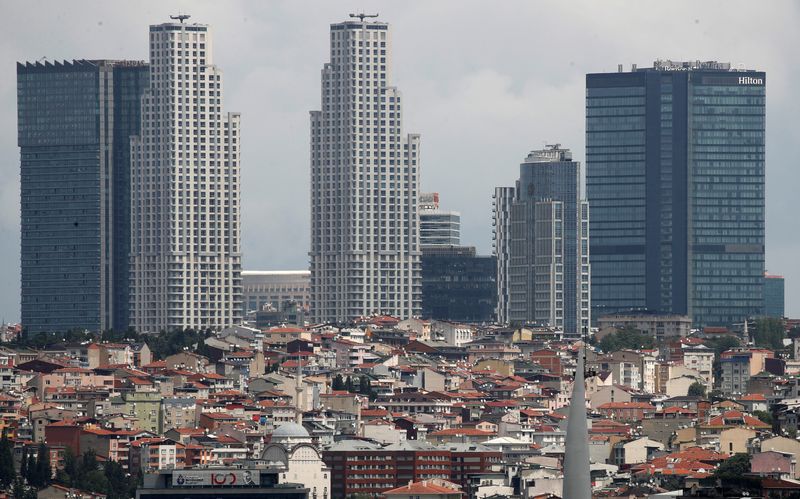By Ezgi Erkoyun and Can Sezer
ISTANBUL (Reuters) -Turkey's economy grew less than expected in the second quarter, expanding an annual 2.5% in the face of a year-long monetary tightening campaign, data showed on Monday, but the quarterly growth rate surprised analysts by remaining positive.
Second-quarter gross domestic product (GDP) grew 0.1% from the previous quarter on a seasonally and calendar-adjusted basis, Turkish Statistical Institute (TUIK) data showed, avoiding an expected contraction.
In a Reuters poll, the economy was forecast to have expanded 3.2% on an annual basis, with growth of 3.35% projected for 2024 as a whole.
Since June 2023, the central bank has hiked its key interest rate to 50% from 8.5% in order to cool demand and lower inflation, which touched 75% in May but dipped to below 62% in July and is expected to continue falling.
Finance Minister Mehmet Simsek said that leading indicators show growth continues to stabilise in the third quarter, and that "a balanced growth composition" is expected this year.
"Growth has begun to stabilise, the current account deficit has narrowed, the risk premium has decreased, while forex flows have accelerated, reserves have improved, and we have entered a disinflation process," he wrote on X.
There was growth of 6.5% in construction, 3.7% in real estate activities and agriculture, forestry and fishing, 3.4% in information and communication, with the value added increasing by 7.4% in other service activities, TUIK said.
Growth was revised down to 5.3% from 5.7% in the first quarter, when strong domestic demand was pushed up by a minimum wage hike and households bringing purchases forward in expectation of higher inflation ahead.
"The net result is that, although the economy is slowing, it hadn't weakened to the extent we (and most others) thought it would have," Capital Economics said in a note.
The "rebalancing remains bumpy," it said.

Last year's annual growth was revised up to 5.1% from an initial 4.5%, despite a slowdown in main trading partners and a devastating earthquake in February.
Earlier on Monday, data showed the Purchasing Managers' Index (PMI) for Turkish manufacturing ticked up to 47.8 from 47.2 in July, according to a survey by the Istanbul Chamber of Industry and S&P Global, still standing below the 50-point level that marks growth in activity.